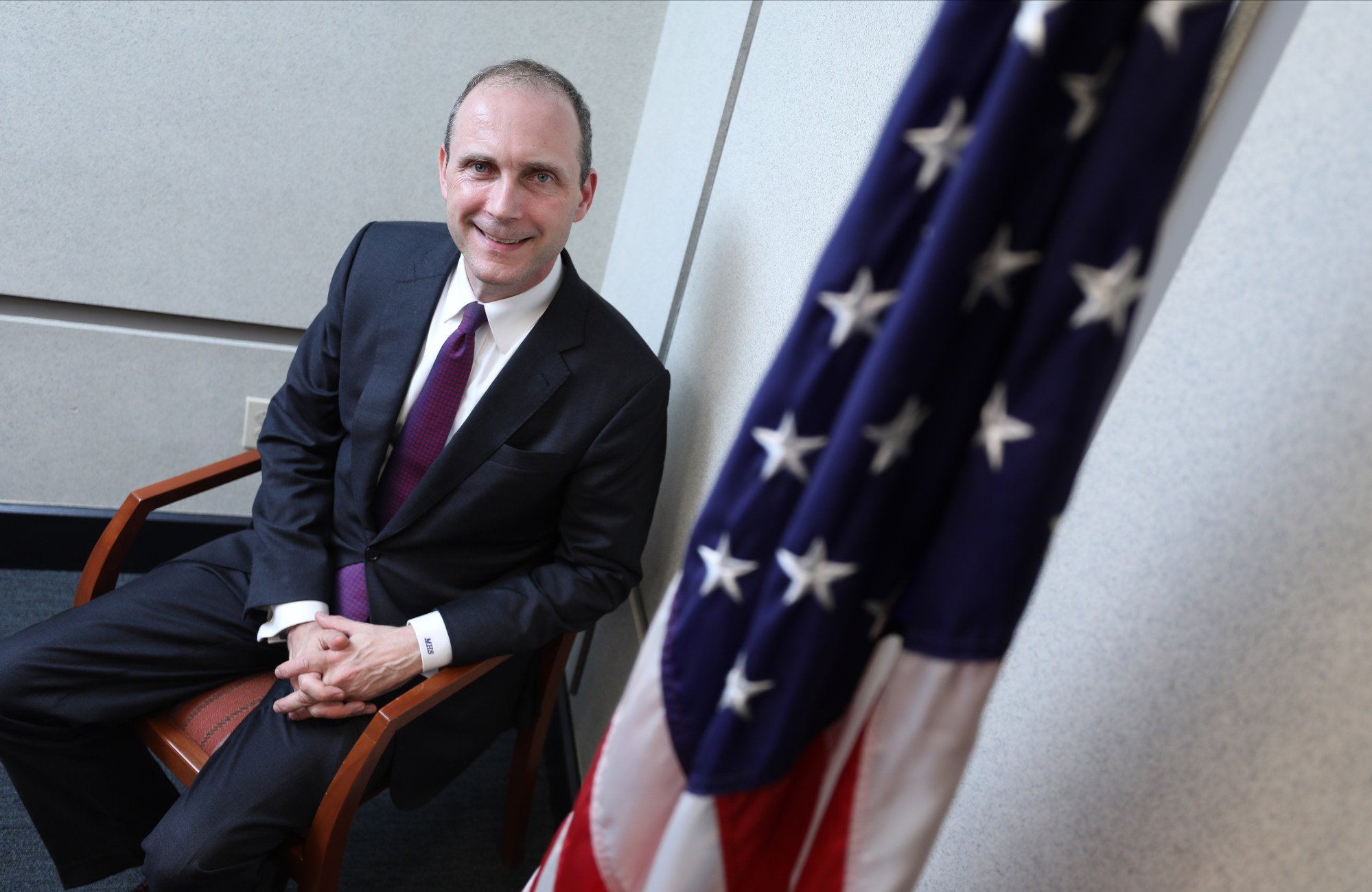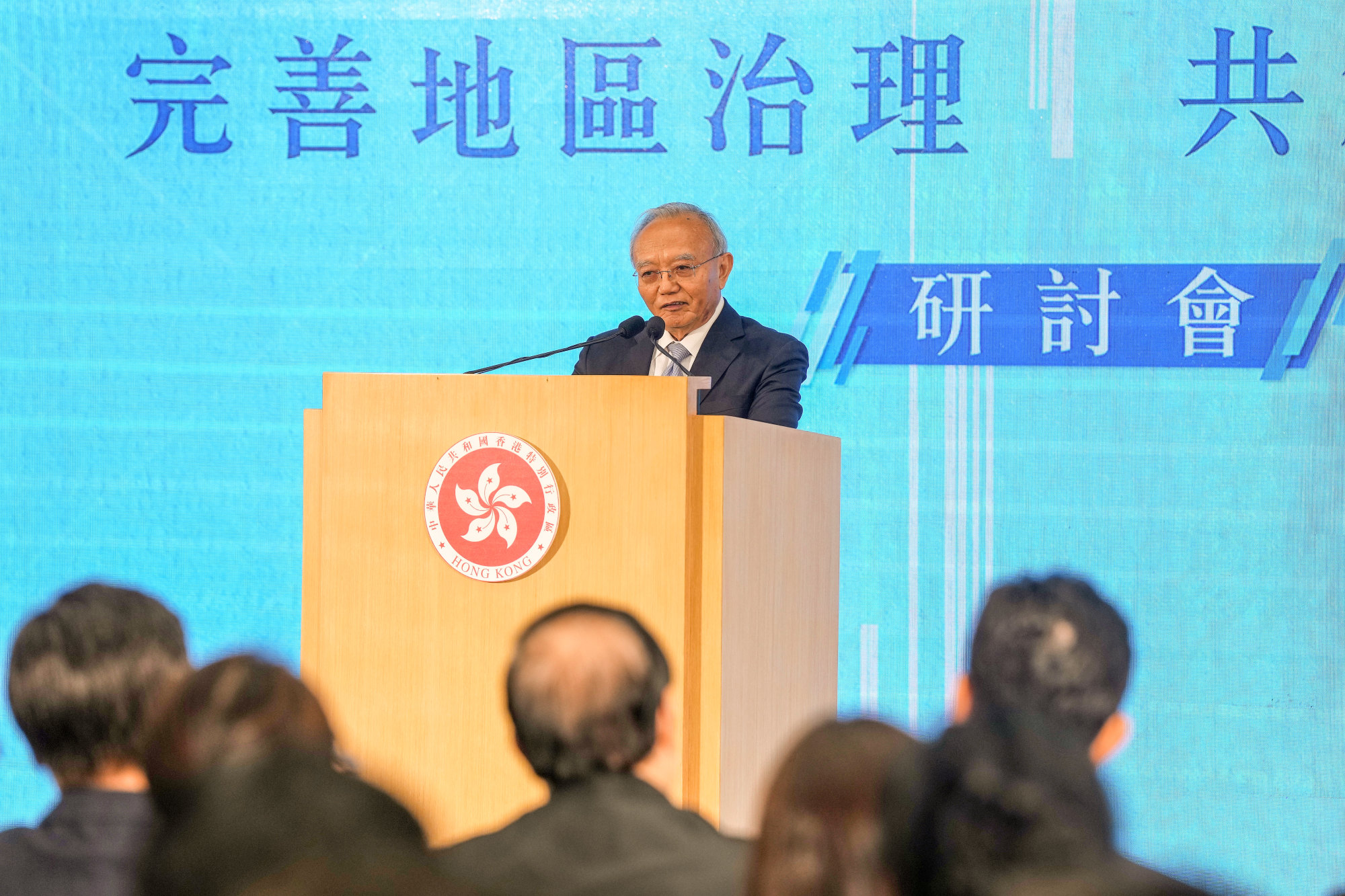Smith, who was consul general to Hong Kong and Macau from 2019 to 2022, is now a senior associate of the Centre for Strategic and International Studies (CSIS), a Washington-based think tank, and a senior fellow at Yale University’s Yale Jackson School of Global Affairs.
Smith’s position ran counter to the views of many American lawmakers, who have pressed for the closure of the three Hong Kong trade offices in the country and other punitive measures.
The article also attracted criticism on social media, mostly from Americans, some Europeans and Hong Kong emigrants, who said his view of press freedom in the city deviated from that described in reports by campaign groups.

In a recent 40-page report called “The Erosion of Hong Kong’s Autonomy since 2020: Implications for the United States”, the CSIS laid out three policy options for relations with the city.
One was to pursue strategic engagement to extend Hong Kong’s “remaining autonomy” by solidifying interactions “across as many domains as possible”, while keeping sanctions and punitive measures.
The two other options were related to the punishment of Hong Kong or abandonment of its special status in American law.
Wilson Chan Wai-shun, a Hong Kong-based international relations academic and director of research at investment and political risk consultancy Orientis, said the US had taken “a twin-track approach”.
“US foreign policy has been greatly influenced by China hawks in Congress,” he said.
“But meanwhile, there have been strong voices, especially those that have economic ties to Hong Kong and the mainland, pushing for the maintenance of active engagement.”
Chan added that the US government, Congress and non-state actors played different roles in dealing with the city.
He said he expected the US administration to pursue strategic engagement, but Congress and non-state organisations would emphasise the two other policy options.
“What practical benefit would the US gain by forcing the closure of Hong Kong’s three trade offices there? None,” Chan added.
He said that the US and the West were exploring a way forward for their relations with Hong Kong after the dust settled on the city’s political changes.
“The last thing they want is to go around in circles,” he added.
Joe Biden, the US president, on Wednesday renewed Hong Kong’s “emergency status” for the fourth time since the executive order that removed the city’s preferential trade status was issued in 2020.

Lau Siu-kai, a consultant at the Chinese Association of Hong Kong and Macau Studies, a semi-official think tank, said he expected harsh criticism from Congress and the Biden administration to continue, but that non-government groups would step up campaigns to rebuild US ties with the city.
“For decades, highlighting Hong Kong’s distinctiveness remained beneficial for US commercial interests. I don’t see a need for them to change this approach,” he said.
Lau said the only difference after Beijing’s changes to the city’s political system was that “Americans can no longer rely on so-called pro-democracy figures as agents”.
Lau said that if former US leader Donald Trump won November’s presidential election, he would probably continue to contain China’s growth, but his country’s approach would shift from focusing on punitive measures to more rhetorical criticism.
He added that he expected Trump would have to navigate a course between pleasing hawks and safeguarding the interests of the many businesses with ties to Hong Kong.
The 2022 census recorded 1,258 US companies with operations in the city, with more than half of them regional in scope.
The figure was nearly 10 per cent lower than the peak of 1,388 logged in 2012.
Smith told the Post that he did not think efforts to build links between civil society in Hong Kong and the US would be derailed if Trump was elected.
“American policy toward Hong Kong has been consistent for decades, and is built on supporting the Hong Kong people and helping the city enjoy the high degree of autonomy it was promised by Beijing,” he said.
His farewell speech in 2022 was condemned by Beijing’s foreign ministry office in the city after he said the laws and values that had helped Hong Kong grow had been threatened by the central government.
Smith added the national security law and major changes to the electoral system had helped destroy the city’s freedom and autonomy.
He maintained in his reply to the Post that the national security laws had hurt Hong Kong’s competitiveness by “making the operating environment more uncertain for businesses”.
But he suggested Washington could do more to offer “more lifeboat or immigration pathways” to vulnerable Hongkongers besides highlighting the “real erosion” of Hong Kong’s autonomy since 2019.
“Businesses – regardless of where they’re from – can also make the case that free information flows, the rule of law, and government accountability are critical to the city’s viability and prosperity,” Smith said.
Dennis Wilder, of Washington’s Georgetown University school of foreign service, who earlier was the US National Security Council’s director for China, said he largely agreed with Smith’s views, including the need to maintain Hong Kong’s trade offices in the US.
Wilder accompanied a group of American students to Hong Kong in May for talks with city and mainland students.
He told the Post recently that meetings with Hongkongers would “help maintain the semi-autonomy that still exists”.
“It is a lot easier to simply write off Hong Kong than it is to engage in a sophisticated and subtle approach,” Wilder said.
“The situation in Hong Kong is complex and requires careful decisions about when to support and when to penalise what is happening there.
“I believe it is definitely worth the effort because the people of Hong Kong deserve our respect and support.”




















